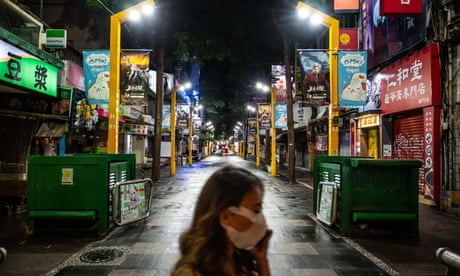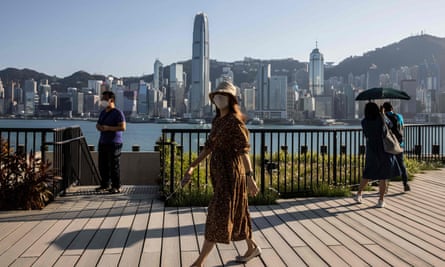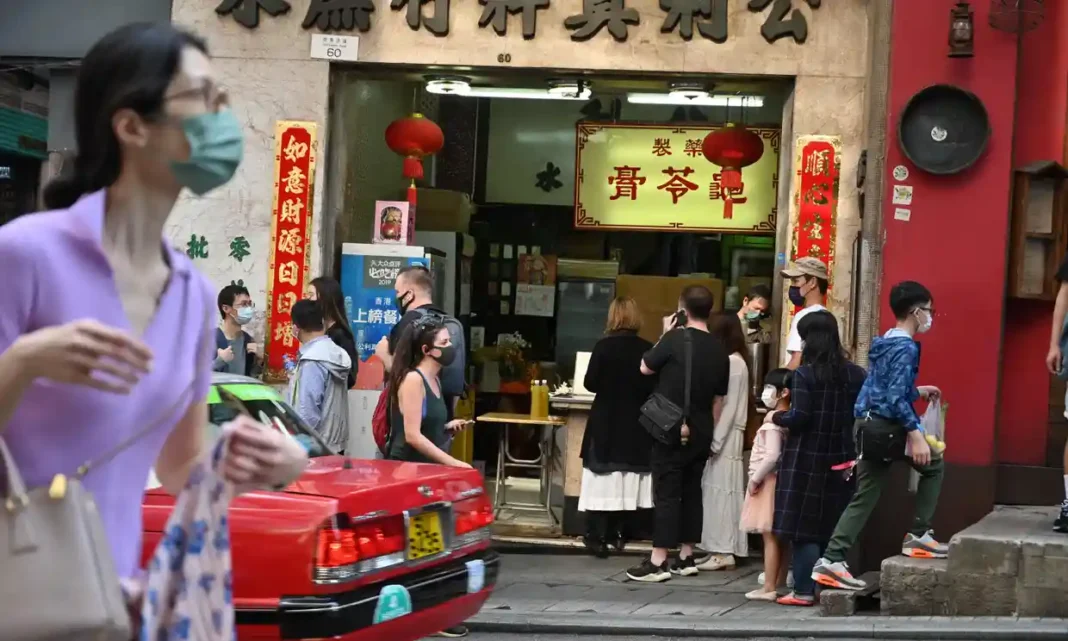Raleigh Chuang’s decision to move to Hong Kong from London in 2021 bemused her friends. She was offered a position at an international bank that required the relocation.
“Why would you move to Hong Kong?” her friends asked, well aware of the political and social upheaval that has gripped the city in recent years.
Hong Kong has seen an exodus of workers since a national security law was introduced in 2020. The erosion of social and political freedoms, due to the security crackdown and tighter digital surveillance that began during Covid-19 pandemic, have coincided with the city’s workforce shrinking by about 140,000 people in the past two years.
More than 10,000 have been arrested for participating in the 2019 pro-democracy protests and some activists have waited for nearly two years for trial without bail. Over the past two years, press freedom has been drastically reduced.

Now Hong Kong is trying to lure workers back. The territory is set to introduce new visas for graduates and experienced workers. It wants to bring back white-collar workers to retain its status as a global financial hub, and also needs young people to stay and fill junior posts. Experts have raised concerns with the plan, while some young people already living in the city feel wary of the social and political climate.
Chuang belongs to a less talked about group who have moved to Hong Kong recently. The 27-year-old, who has heritage from both Taiwan and Hong Kong, says she was not convinced by the international media’s portrayal of Hong Kong, which has at times pitched it as a city in decline. Chuang wanted an unbiased view of the city, saying she enjoys the thrill of being in a controversial place during a controversial time.
“Part of my decision to move to Hong Kong is paradoxically fuelled by the current, unprecedented situation the city is in,” she says.
“There must be a grey zone amidst all this and I wanted to see for myself.”
Talent hunt
Hong Kong’s population has fallen from 7.52 million at the end of 2019, to 7.29 million in mid-2022, according to census data. The number of people aged 20-29 has shrunk from 11.8% of the city’s population in 2019, to 9.9% 2022. More than 130,000 Hongkongers moved to the UK in the first 18 months after the government opened a special visa scheme in January 2021.
Unveiling measures to address the brain drain, Hong Kong’s chief executive, John Lee, said the government “will proactively trawl the world for talent”.
Next month the city will launch the two-year visa scheme without the need to first secure a job, provided the applicant had an annual salary of at least HK$2.5m ($320,000; £269,000) in the past year. They must have also graduated from the world’s “Top 100 universities” and have three years of work experience.
An annual quota of 10,000 visas will be available to graduates of the world’s Top 100 universities, who haven’t had three years of work experience. Existing schemes to bring talent from mainland China and overseas have been streamlined, and the time non-local graduates can stay in Hong Kong after graduation has been extended from one to two years.
Prof Bradley Barnes, dean of Hang Seng University’s School of Business, is sceptical about whether the measures will be enough to lure people from other countries, adding high property prices may discourage some.
Barnes, who has lived in Hong Kong for five years, still believes it to be a vibrant city and feels encouraged by the recent relaxation of Covid-19 restrictions, such as the scrapping of inbound hotel quarantine.
Yet he also noted that the manpower shortage is more severe in low-to-middle income jobs, an area Hong Kong’s new policies seems not to address.

In addition to the visa schemes, Hong Kong has this month hosted two events – the lively Rugby World Sevens and a global banking summit – aimed at showing the city is back in business.
Advertisement
Emily Chan, a talent adviser for local start-ups, says Hong Kong’s access to Asia, as well as the city’s education sector, are factors that might appeal to candidates.
She also says young people may be attracted to Hong Kong’s vibrant lifestyle, provided they can afford the high living costs.
After eight years in Hong Kong, Richard*, a British national working in education, feels uncertain about his future in the city.
“Society has become noticeably less free over the time I’ve spent here,” Richard said, naming arrests over internet speech as a source of worry.
A steady job and an independent music project that is gaining traction among the local audience is keeping him in Hong Kong, while adding he will leave if he feels his safety is compromised.
A freer life than the mainland
For some Hong Kong still offers more opportunities and freedom than mainland China.
University student Jacky*, originally from mainland China, belongs to the LGBTQ+ community. He says the university supported related activism, which would have been banned on the mainland.
“It is hard to come out on the mainland,” he says.
Jacky says cultural diversity in Hong Kong is another draw, and mastered Cantonese two years after arriving in the city. He plans to find work in Hong Kong after graduation and stay until he obtains permanent residency.
Journalist Stephanie*, who came from the mainland, echoes similar sentiments. After four years studying and working in Hong Kong, she has a “love-hate” relationship with the city. She says while she has experienced xenophobia from some locals, she originally chose Hong Kong as it provided a view of mainland China with a freer media environment. That has significantly reduced, but Stephanie says career opportunities for women are still greater in Hong Kong than the mainland. So for now, she’s choosing to stay.
*Names have been changed
theguardian.com

